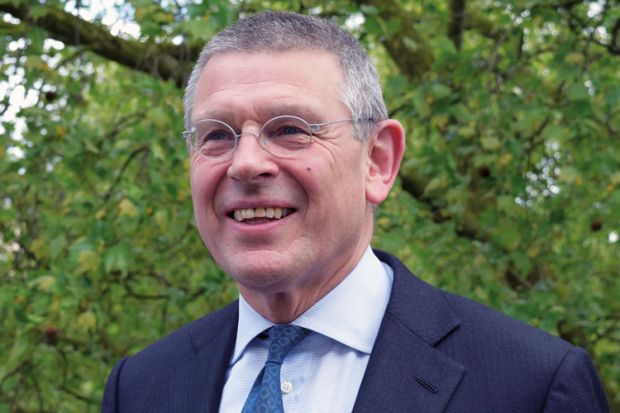Howard Covington has held numerous positions within the Civil Service, and in investment banking and asset management. He was the first non-academic chairman of the management committee of the Isaac Newton Institute for Mathematical Sciences at the University of Cambridge and in 2010 was made a fellow of the Institute of Physics. In June he was named chair of the planned Alan Turing Institute.
Where and when were you born?
Eastbourne in 1953.
How has this shaped you?
Eastbourne had no noticeable long-term effect. But as an early baby boomer I was immensely fortunate to have free-of-charge access to a fantastic education.
What were your immediate thoughts upon being announced as chair of the Alan Turing Institute?
How lucky I was.
What is the significance of the institute?
Data science will transform our lives in a generation or two. The Alan Turing Institute has been set up to make sure the UK is a global leader in data science.
What do you think Alan Turing would think of the institute were he alive today?
I think he would be immensely excited by the prospect and very proud as he saw it bearing fruit.
With the development of the institute and the emergence of the Francis Crick Institute, the UK is investing heavily in STEM research. Where do you think the country stands on a global scale?
As a country we are smart and creative with a fabulous tradition in higher education and science. In a highly competitive world we have to make the most of what we have. The creation of the Francis Crick and Alan Turing institutes sends a strong signal that we intend to do just that.
What is the scope for the institute in terms of global higher education?
We intend to have the best data science PhD training programme in the world. This will feed cohorts of highly trained data scientists into commerce, industry, government and academia.
What do you view as your biggest priority?
All the founding partners are working immensely hard to ready the institute to be a truly national centre that produces first-class research with a high impact on the economy and society. I try to help them bring that about.
You are not an academic by training. What advantages and/or disadvantages does this bring to chairing a scholarly institution such as this one?
Well, there is no point picking an academic argument with me, so that saves us lots of time. More seriously, data science is having a rapid and transformative effect on commerce and industry and my commercial perspective can contribute to the way the institute engages in this area.
Big Data is described as one of the “eight great technologies”. How important is it for Britain to be at the forefront of research and work in this area?
Fundamentally important. If we don’t make our own future, someone else will make it for us.
Have you had a eureka moment?
Don’t we all? One of the enormous pleasures of mathematical sciences, even at an amateur level, is suddenly to understand some deep connection between seemingly disparate ideas.
As a child, what did you want to do when you grew up?
I wanted to be a mathematical scientist of some sort.
If you were a prospective university student now facing tuition fees of £9,000 a year, would you go again or go straight into work?
Every month or so we hear of a data science-based company that has just been sold for some huge amount that is to be split among some funders and its founding young data science PhD students. They enjoy nothing more than doing their day jobs in data science research. I would work out how I might do the same as them and I wouldn’t let a student loan stand in my way.
What kind of undergraduate were you?
I was passionate about mathematical sciences and that more or less defined me.
What was your most memorable moment at university?
The sense of awe at spending my first day in Cambridge.
What keeps you awake at night?
We are in an age of immense opportunity but huge risks. These worry me.
What advice would you give to your younger self?
Find your passion and follow it.
What do you do for fun?
I try not to do anything unless it is fun.
Tell us about someone you’ve always admired.
Beethoven, whose late works composed when he was deaf contain so much deep beauty that he created purely for others to hear.
What are the best and worst things about your job?
It is just a fabulous job.
What one policy would you implement if you were higher education minister for the day?
I would double the wages of maths teachers…and then run!
POSTSCRIPT:
Article originally published as: HE & me (9 July 2015)
Register to continue
Why register?
- Registration is free and only takes a moment
- Once registered, you can read 3 articles a month
- Sign up for our newsletter
Subscribe
Or subscribe for unlimited access to:
- Unlimited access to news, views, insights & reviews
- Digital editions
- Digital access to THE’s university and college rankings analysis
Already registered or a current subscriber?
